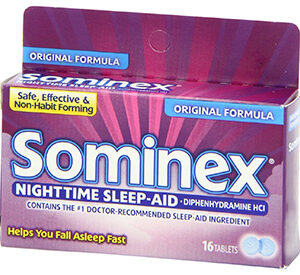Provigil Medication Overview
Provigil (modafinil) is a prescription medication approved for the treatment of excessive sleepiness associated with narcolepsy, obstructive sleep apnea (OSA), and shift work sleep disorder (SWSD). It is classified as a wakefulness-promoting agent.
Chemical Composition
The active ingredient in Provigil is modafinil, a racemic compound. Its chemical name is 2-[(diphenylmethyl)sulfinyl]acetamide. The molecular formula is C15H15NO2S, and it has a molecular weight of 273.35.
Dosage Forms and Strengths
Provigil is available in tablet form for oral administration. Common dosage strengths include 100 mg and 200 mg tablets.
Pharmacological Mechanism
The exact mechanism by which modafinil promotes wakefulness is not fully understood. However, it is believed to work by influencing certain neurotransmitters in the brain that regulate the sleep-wake cycle, such as dopamine, norepinephrine, and orexin.
Indications for Use
Provigil is indicated for patients with narcolepsy, obstructive sleep apnea who experience excessive daytime sleepiness, or shift work sleep disorder. It is intended to improve wakefulness and is not a replacement for obtaining adequate sleep.
Administration Guidelines
Provigil should be taken once daily. For patients with narcolepsy and OSA, the recommended dose is usually taken in the morning. For those with SWSD, it is typically taken approximately one hour prior to the start of the work shift. Food does not significantly alter the bioavailability of modafinil, but it may delay its onset of action.
Adjustments for Special Populations
Dosage adjustments may be necessary for patients with hepatic impairment or severe renal impairment. Provigil is not recommended in patients with a history of left ventricular hypertrophy or ischemic ECG changes, chest pain, arrhythmia, or other clinically significant manifestations of mitral valve prolapse in association with CNS stimulant use.
Drug Interactions
Provigil can interact with various drugs such as cyclosporine, ethinyl estradiol, triazolam, and others that are substrates of CYP3A4/5, CYP2C19, and CYP2C9. It may decrease the effectiveness of hormonal contraceptives. Substances that induce or inhibit CYP enzyme activities may affect modafinil’s pharmacokinetics.
Side Effect Profile
Common side effects of Provigil include headache, nausea, nervousness, rhinitis, diarrhea, back pain, anxiety, insomnia, dizziness, and dyspepsia. Serious side effects, although rare, may include severe rash, angioedema, and multi-organ hypersensitivity reactions.
Important Pre-Treatment Assessment
Before initiating Provigil, assess for the presence of cardiac disease or history of myocardial infarction. Evaluate blood pressure and control any hypertension before prescribing. A thorough history of mental health issues, including psychosis, depression, or mania, should also be evaluated due to the potential for exacerbation of these conditions.
Monitoring During Treatment
Regular monitoring of heart rate and blood pressure is recommended. Regularly reassess the need for continued treatment with Provigil. Monitor patients for signs of drug misuse or abuse, as modafinil possesses the potential for dependence.
Pregnancy and Lactation Considerations
There is inadequate information on the use of Provigil during pregnancy. Animal studies show potential for harm. It should only be used during pregnancy if the potential benefit justifies the potential risk to the fetus. Modafinil is excreted in human milk. Caution should be exercised when administered to a nursing mother.
Pharmacokinetic Properties
Provigil is well-absorbed with peak plasma concentrations occurring at 2 to 4 hours post-dose. The bioavailability of modafinil tablets is approximately 100% of the administered dose. The elimination half-life of modafinil is approximately 12 to 15 hours.
Storage and Handling
Tablets should be stored at 20 to 25°C (68 to 77°F) with excursions permitted to 15 to 30°C (59 to 86°F). Keep Provigil and all medicines out of the reach of children.
Instructions for Missed Doses
If a dose is missed, patients should take it as soon as possible; however, if it is nearing the time for their next scheduled dose, they should skip the missed dose. Patients should not take extra medicine to make up for the missed dose.
Discontinuation Protocol
If discontinuation of Provigil is needed, gradual tapering of the dose may be appropriate. This depends on patient-specific factors including treatment duration and dosage. Abrupt cessation should be avoided as it may lead to withdrawal symptoms.




Reviews
There are no reviews yet.